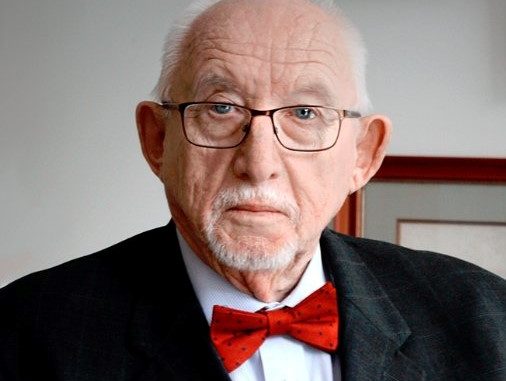
Washington, 20 luglio 2019 – Sono l’equivalente della burocrazia dei fantasmi: vecchie politiche, valenze e idee che hanno perso la loro rilevanza – se mai ne hanno avute – e sono prive di un collegio elettorale, ma vivono. Prendi l’Overseas Private Investment Corporation (OPIC), un’agenzia poco conosciuta e autosufficiente del governo, creata nel 1971 per aiutare le imprese americane a investire nei mercati emergenti. Aiuta con i rischi che non rientrano nel campo di applicazione della Export Import Bank e facilita l’attrazione del capitale privato per il sollevamento di carichi pesanti. È considerato un successo e uno strumento importante in politica estera, tanto che a ottobre sarà trasformato in una nuova agenzia, la statunitense International Development Finance Corporation, per lavorare in collaborazione con l’agenzia statunitense per lo sviluppo internazionale. Il sito web di OIPC afferma chiaramente che aiuta i produttori degli Stati Uniti a prendere piede in nuovi mercati. Non elenca le esclusioni dalla sua considerazione. Ma ha priorità e punti ciechi, spesso ereditati dagli atteggiamenti di una precedente amministrazione. Un esempio calzante è che non presterà aiuto ai paesi che acquistano energia nucleare o attrezzature nucleari. L’industria nucleare, che si esercita su questo impedimento alle vendite in nuovi mercati, crede che le politiche dell’agenzia di opporsi a tale assistenza si trovano nell’ambivalenza verso il nucleare in alcune parti dell’amministrazione Obama.
Normalmente, questo sarebbe di scarsa importanza perché OPIC non può permettersi di finanziare una nuova centrale nucleare di tipo tradizionale, che arriva a miliardi di dollari. I limiti di prestito sono dell’ordine di centinaia di milioni, ma forniscono una mitigazione del rischio che consente agli altri finanziamenti di procedere. Ciò è particolarmente importante perché l’industria nucleare è in via di reinvenzione: i piccoli reattori modulari sono la nuova realtà. Questi hanno molti design e supporto variegato, compreso il reattore a onde mobili di TerraPower, una società finanziata da Bill Gates, e il primo di questi nuovi piccoli reattori, il NuScale, sarà presto distribuito presso l’Idaho National Engineering Laboratory. Venderà il potere a un consorzio di servizi pubblici locali. La posta in gioco non è piccola. Cinquanta aziende stanno lavorando a nuovi progetti nucleari, molti dei quali piccoli reattori modulari che possono essere costruiti in una fabbrica e spediti ai loro siti di installazione per l’assemblaggio. Tutti saranno caratterizzati da progetti che eliminano la possibilità di incidenti catastrofici e cercheranno di ridurre al minimo le scorie nucleari. In breve, i nuovi reattori sono rivolti ai mercati in cui OPIC è interessato. La sua missione, specialmente quando si trasformerà in US International Development Finance Corporation questo autunno, sarà quella di contrastare il marketing cinese aggressivo sotto la sua onnipresente iniziativa Belt and Road, che cerca di svuotare i mercati in Asia e in Europa.
David Blee, presidente dinamico del Consiglio per l’industria nucleare degli Stati Uniti, ha incontrato i funzionari dell’OPIC. Blee, insieme ai dirigenti dell’industria nucleare, ha anche avuto un incontro con il presidente Trump, dove è stata sollevata la questione. Trump si rivolse al suo migliore consigliere economico Larry Kudlow e gli chiese di indagare. Finora, l’OPIC non ha ammorbidito la sua posizione anti-nucleare. Gli avvocati che si occupano di commercio internazionale di armi nucleari mi dicono che il danno derivante dal divieto dell’OPIC di intraprendere progetti nucleari è duplice: in primo luogo, è probabile che progetti specifici vadano alla concorrenza straniera, e in secondo luogo il fatto che una grande agenzia statunitense non intratterrà nemmeno l’assistenza in il finanziamento di tali progetti suggerisce una mancanza di fiducia nei prodotti nucleari americani da parte del governo stesso. Gli appaltatori della difesa hanno sempre scoperto che è impossibile vendere l’hardware di difesa all’estero se quella stessa attrezzatura non viene utilizzata dal Pentagono. La psicologia dell’acquirente non è difficile da capire: se non è abbastanza buono per gli Stati Uniti, non vogliamo saperlo. I critici dell’agenzia non possono dire che è del tutto estraneo alla realtà di oggi: sta contribuendo a finanziare i progetti di Ivanka Trump per le donne di tutto il mondo. Forse gli imprenditori nucleari americani dovrebbero cercare di lanciare le loro nuove macchine magiche alla prima figlia. Dopo tutto, l’industria nucleare sta impiegando sempre più donne.
Su Twitter: @ llewellynking2 Llewellyn King è produttore esecutivo e conduttore di “White House Chronicle” su PBS.
On Twitter: @llewellynking2
Llewellyn King is executive producer and host of “White House Chronicle” on PBS.
Read this column on:
InsideSources
White House Chronicle
Llewelly King, giornalista, editorialista, internazionalista, esperto di energia, appassionato di scienza e tecnologia, docente e oratore pubblico. È un emittente britannico con sede a Rhode Island dello Stato del Rhode Island negli Stati Uniti, nella regione del New England e un frequente collaboratore di Huffington Post. Ha creato, prodotto e ospitato il White House Chronicle, un programma settimanale di notizie e affari pubblici in PBS PBS ( Public Broadcasting Service, azienda no-profit statunitense di radiodiffusione pubblica appartenente ad un consorzio che rappresenta 349 stazioni televisive pubbliche nazionali)
Come appassionato campione di ME / CFS ha scritto numerosi articoli sulla malattia e fondato e co-conduttore ME / CFS Alert [1] su YouTube con Deborah Waroff dal 2011. Llewellyn ha scritto una lettera aperta su The Hill “Un lavoro per un membro del Congresso solitario: parla per una malattia dimenticata”.
| Nuclear Industry Claims Embedded Prejudice in Finance AgencyThey are bureaucracy’s equivalent of ghosts: old policies, fiats and ideas that have lost their relevance — if they ever had any — and are without a constituency, but they live on.Take the Overseas Private Investment Corporation (OPIC), a little-known, self-sustaining agency of the government, which was set up in 1971 to help American businesses invest in emerging markets. It helps with risks that are outside the purview of the Export Import Bank and facilitates the attraction of private capital to do the heavy lifting. It is considered a success and an important tool in foreign policy, so much so that in October, it will be subsumed into a new agency, the U.S. International Development Finance Corporation, to work in conjunction with the U.S. Agency for International Development.OIPC’s website says clearly that it helps U.S. manufacturers gain a foothold in new markets. It does not list exclusions from its consideration.But it has priorities and blind spots, often inherited from the attitudes of a previous administration. A case in point is that it will not lend to help countries buy nuclear power or nuclear power equipment.The nuclear industry, which is exercised about this impediment to sales in new markets, believes that the agency’s policies of opposing such assistance lie in ambivalence toward nuclear in parts of the Obama administration.Normally, this would be of little consequence because OPIC cannot afford to finance a whole new nuclear power plant of the traditional type, running to billions of dollars. Its lending limits are in the hundreds of millions, but it does provide risk mitigation that enables other financing to proceed.This is especially important because the nuclear power industry is in the throes of reinvention: Small modular reactors are the new reality. These have many designs and varied support, including the traveling wave reactor from TerraPower, a Bill Gates-funded company, and the first of these new small reactors, the NuScale, is soon to be deployed at the Idaho National Engineering Laboratory. It will sell power to a consortium of local public utilities.The stakes are not small. Fifty companies are working on new nuclear designs, most of them small modular reactors that can be built in a factory and shipped to their deployment sites for assembly. All of them will feature designs that obviate the possibility of catastrophic accidents and will seek to minimize nuclear waste.In short, the new reactors are aimed at the very markets that OPIC is interested in. Its mission, especially when it morphs into U.S. International Development Finance Corporation this fall, will be to counter aggressive Chinese marketing under its ubiquitous Belt and Road initiative, which seeks to vacuum up markets in Asia and Europe.David Blee, the dynamic president of the U.S. Nuclear Industry Council, has met with OPIC officials. Blee, along with nuclear industry executives, has also had a meeting with President Trump, where the issue was raised. Trump turned to his top economic adviser Larry Kudlow and asked him to investigate. So far, OPIC has not softened its anti-nuclear stance.Lawyers who deal in international nuclear trade tell me the damage from OPIC’s ban on taking on nuclear projects is twofold: First, specific projects are likely to go to foreign competition, and second is the fact that a major U.S. agency will not even entertain assisting in financing such projects suggests a lack of confidence in American nuclear products by the government itself.Defense contractors have always found it is impossible to sell defense hardware abroad if that same equipment is not deployed by the Pentagon. The buyer psychology is not hard to fathom: If it is not good enough for the United States, we do not want to know about it.Critics of the agency cannot say that it is wholly out of touch with today’s reality: It is helping to finance Ivanka Trump’s projects for women around the world. Maybe America’s nuclear entrepreneurs should look to pitching their magical new machines to the first daughter. After all, the nuclear industry is employing more and more women. On Twitter: @llewellynking2 Llewellyn King is executive producer and host of “White House Chronicle” on PBS.Read this column on: InsideSources White House Chronicle |





